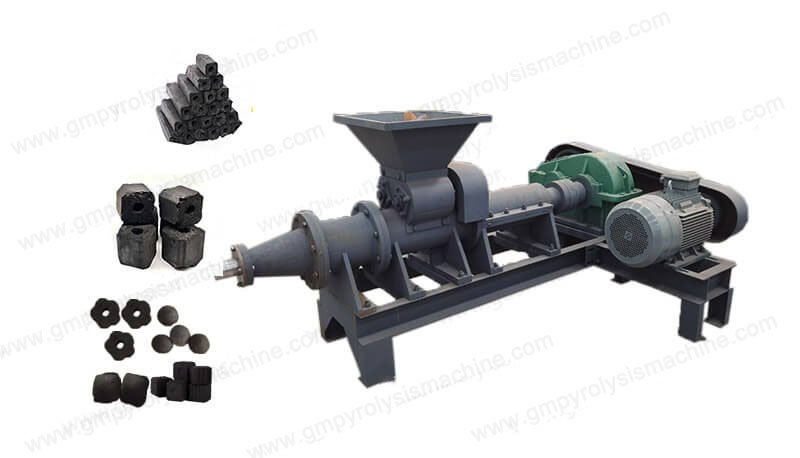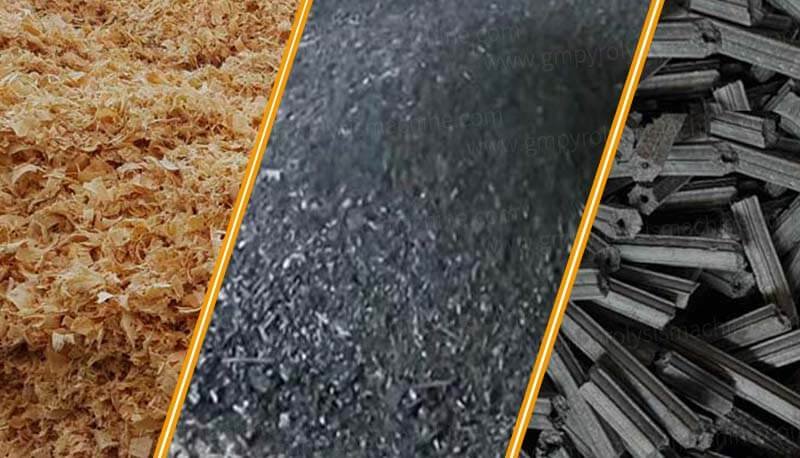The process of making charcoal briquettes is a well-established method that transforms wood or other organic materials into a convenient and efficient fuel source.
Charcoal Briquettes Making Process Step
1. Raw Material Selection:
The first step is to select the right raw material. Typically, this includes wood scraps, sawdust, or other biomass. The quality of the raw material affects the final product’s performance.
2. Carbonization:
The selected material is then carbonized, which means it is heated in a low-oxygen environment (often in a kiln or retort) to remove moisture and volatile compounds. This process converts the wood into charcoal. The temperature and duration of carbonization are carefully controlled to ensure the best results.
3. Grinding:
Once the charcoal is produced, it is ground into a fine powder. This increases the surface area and makes it easier to form into briquettes.
4.Mixing with Binders:
The powdered charcoal is mixed with binders, such as starch, to help hold the briquettes together. Other additives like limestone or borax may be added to improve burning properties and reduce ash content.
5. Forming Briquettes:
The mixture is then pressed into the desired shape, typically using a briquette press. The pressure applied during this step helps to compact the mixture and create a solid, uniform briquette.
6. Drying:
After forming, the briquettes need to be dried to remove any remaining moisture. This is usually done in a drying oven or by air-drying. Proper drying ensures that the briquettes will light easily and burn efficiently.
7. Packaging:
Finally, the dried briquettes are packaged for distribution. They are often packed in bags or boxes, sometimes with additional packaging to protect them from moisture and damage.
8. Quality Control:
Throughout the process, quality control checks are performed to ensure that the briquettes meet the required standards. This includes testing for size, density, and burn characteristics.
By following these steps, manufacturers can produce high-quality charcoal briquettes that are ideal for barbecuing, heating, and other applications. The process not only recycles waste wood but also provides a sustainable and efficient fuel source.






